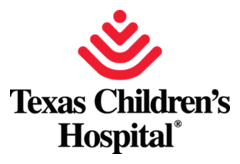Texas Care provides comprehensive behavioral health services for children, including diagnostic evaluations, skills training and development, medication management, crisis intervention, targeted case management, and individual and group therapy. We focus on supporting children’s emotional growth, resilience, and ability to navigate challenges, fostering a healthier and brighter future. Our services are designed to involve parents or guardians, ensuring a collaborative approach that benefits the entire family.
Frequently Asked Questions
What services do you offer for adults?
Texas Care offers a range of behavioral health services for adults, including psychological evaluations, mental health rehabilitation to include skills training and development, psychosocial rehabilitation, medication management, crisis intervention, targeted case management, and psychotherapy. We focus on empowering individuals to manage their mental health challenges, build coping strategies, and improve their overall well-being. Our compassionate team ensures that adults receive personalized care tailored to their unique needs and goals.
Is parent or guardian involvement required during treatment?
Parent or guardian involvement is integral to behavioral health services at Texas Care, including skills training and development. When a child qualifies for these services, Legal Guardians, Parent(s), and families can also participate and receive support to help improve the emotional and mental wellbeing of the child. This involvement helps parents or guardians learn strategies to reinforce their child’s progress at home and build skills that support the entire family’s well-being. Our clinicians will work with you to create a collaborative treatment approach that benefits both you and your child.
Do you offer tele-health or virtual services?
Yes! Texas Care uses a HIPAA-compliant, user-friendly electronic health record system to meet with you virtually.
How do I know if my child needs behavioral health services?
If you're unsure whether your child needs behavioral health services, look for signs such as significant changes in mood, behavior, or academic performance, difficulty managing emotions, persistent sadness or anxiety, trouble with social interactions, or any behaviors that disrupt daily activities. If these issues are impacting their quality of life, it’s a good idea to consult with a professional for an assessment. Our team at Texas Care can help determine the best course of action and provide support tailored to your child's needs.
What should I bring to my first appointment?
For your first appointment, please bring your insurance information, a valid ID, and ensure all intake documents are completed. Having these items ready helps us begin the assessment and treatment process smoothly and efficiently.
What should I expect during my first appointment?
During the first appointment, you will undergo a comprehensive diagnostic evaluation. This assessment helps us understand your unique needs, strengths, and challenges. Our licensed clinicians will ask questions, gather information, and possibly use standardized tools to create a detailed profile. This initial step ensures we develop an effective, personalized treatment plan to support your mental health and well-being. We also take time to explain the process and answer any questions you may have to make you and you feel comfortable and informed.
Do you accept Medicaid?
Texas Care accepts Medicaid and Managed Care Organizations throughout Texas! Contact your local Texas Care to find out specifically which Managed Care Organizations they accept.
How do I find a Texas Care near me?
There are a few ways you can find a Texas Care near you! You can enter your address/location on our map that is coming soon to our website or call 1-888-988-6329 and an intake specialist will help you schedule an appointment with a Texas Care location near you.
How much does it cost?
Texas care focuses on working directly with medicaid funded insurances that cover our services. If you are covered by Texas Medicaid and a Managed Care Organization listed, it is of no cost to you.
Contact us for private insurances and self pay rates for psychotherapy services.
Do I need a diagnosis to get help?
Each program has their own specific requirements to be eligible to receive services. However, if you are struggling and have never received a diagnosis, you will be fully evaluated by a Clinician to determine if you have a mental illness.




